
Carol Maney never got to hold her baby, or even see him. She didn’t know if she had given birth to a boy or a girl. She remembers her waters breaking and then waking up in an operating theatre with green tiles and chrome. All she knew was that she had gone to bed pregnant and woken with a torn birth canal and stitches.
“I was cold, I woke up, I got off the bed and all this blood went everywhere. The nurse came in and told me off for making a mess. For nine days I had no memory. I think I was drugged the whole time,” she tells The Weekly. And she was traumatised.
When Carol came to, her baby was gone, ripped away. She was 17 years old, alone, without support – a naïve, unformed country girl who hadn’t even known how babies were made. To avoid bringing shame on the family, she had been sent to Elim House, an institution in Hobart, Tasmania, where pregnant girls could avoid the social disgrace of a child out of wedlock – of loose morals – where, for the term of their pregnancy, they could disappear.
Run by The Salvation Army, it was a brutal place. “It was dreadful,” says Carol. “We were treated like rubbish, as if we were nothing, like we were not human. The staff were cold and unfeeling. I don’t think anybody talked to me as a person. I never had a conversation with anyone. You were something they wiped their feet on. There was no counselling or support.’’
Instead, even though they or their families were paying board, the girls were punished for their sins. They were made to work in the commercial laundry, to scrub steps, slave in the kitchen. Heavily pregnant, Carol was cleaning the bathroom with a toothbrush just before she gave birth.
She knows of “young women tied to the bed, faces covered with pillows so they couldn’t see their child and bond. There was a whole industry of taking babies.”
Diese Geschichte stammt aus der October 2019-Ausgabe von The Australian Women's Weekly.
Starten Sie Ihre 7-tägige kostenlose Testversion von Magzter GOLD, um auf Tausende kuratierte Premium-Storys sowie über 8.000 Zeitschriften und Zeitungen zuzugreifen.
Bereits Abonnent ? Anmelden
Diese Geschichte stammt aus der October 2019-Ausgabe von The Australian Women's Weekly.
Starten Sie Ihre 7-tägige kostenlose Testversion von Magzter GOLD, um auf Tausende kuratierte Premium-Storys sowie über 8.000 Zeitschriften und Zeitungen zuzugreifen.
Bereits Abonnent? Anmelden
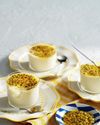
Maggie's kitchen
Maggie Beer's delicious veg patties - perfect for lunch, dinner or a snack - plus a simple nostalgic pudding with fresh passionfruit.

Reclaim your brain
Attention span short? Thoughts foggy? Memory full of gaps? Brigid Moss investigates the latest ways to sharpen your thinking.
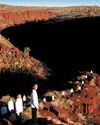
The girls from Oz
Melbourne music teacher Judith Curphey challenged the patriarchy when she started Australia's first all-girls choir. Forty years later that bold vision has 6500 members, life-changing programs and a new branch of the sisterhood in Singapore.
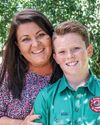
One kid can change the world
In 2018, 10-year-old Jack Berne started A Fiver for a Farmer to raise funds for drought relief. He and mum Prue share what happened next.
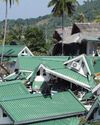
AFTER THE WAVE
Twenty years ago, the Boxing Day tsunami tore across the Indian Ocean, shredding towns, villages and holiday resorts, and killing hundreds of thousands of people from Indonesia to Africa. Three Australians share their memories of terror, loss and survival with The Weekly.
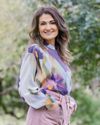
PATRICIA KARVELAS How childhood tragedy shaped me
Patricia Karvelas hustled hard to chase her dreams, but it wasn't easy. In a deeply personal interview, the ABC host talks about family loss, finding love, battles fought and motherhood.
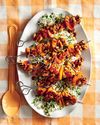
Ripe for the picking
Buy a kilo or two of fresh Australian apricots because they're at their peak sweetness now and take inspiration from our lush recipe ideas that showcase this divine stone fruit.
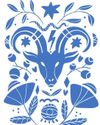
Your stars for 2025
The Weekly’s astrologer, Lilith Rocha, reveals what’s in store for your astrological sign in 2025. For your monthly horoscope, turn to page 192.
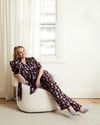
MEL SCHILLING Cancer made me look at myself differently'
One year on from going public with her bowel cancer diagnosis, Mel Schilling reveals where she's at with her health journey and how it's changed her irrevocably.

Nothing like this Dame Judi
A few weeks before her 90th birthday, the acting legend jumped on a phone call with The Weekly to talk about her extraordinary life – and what’s still to come.